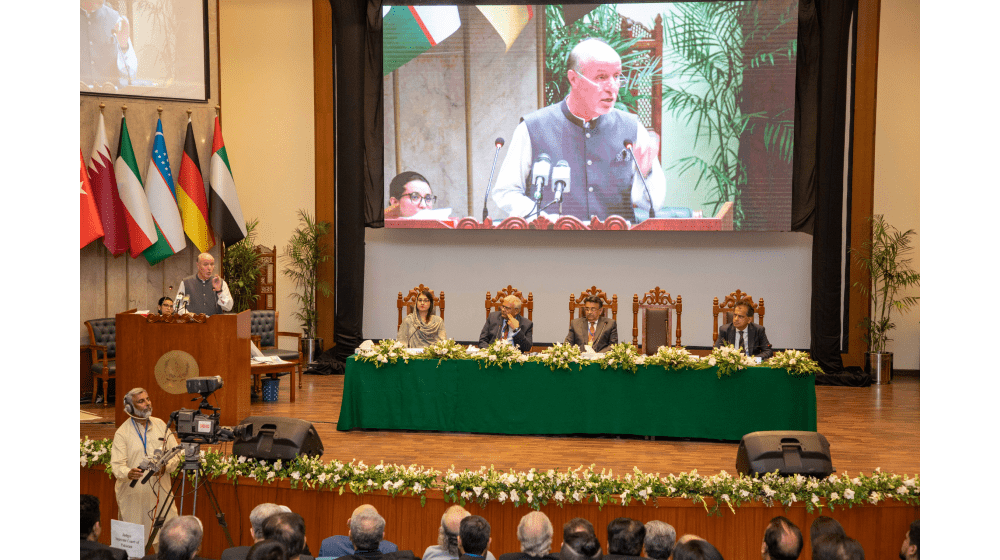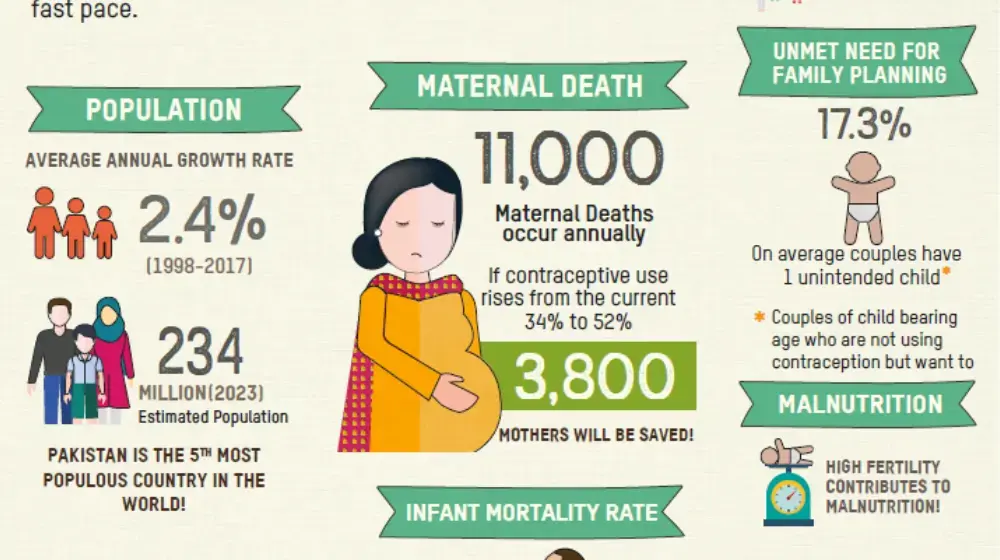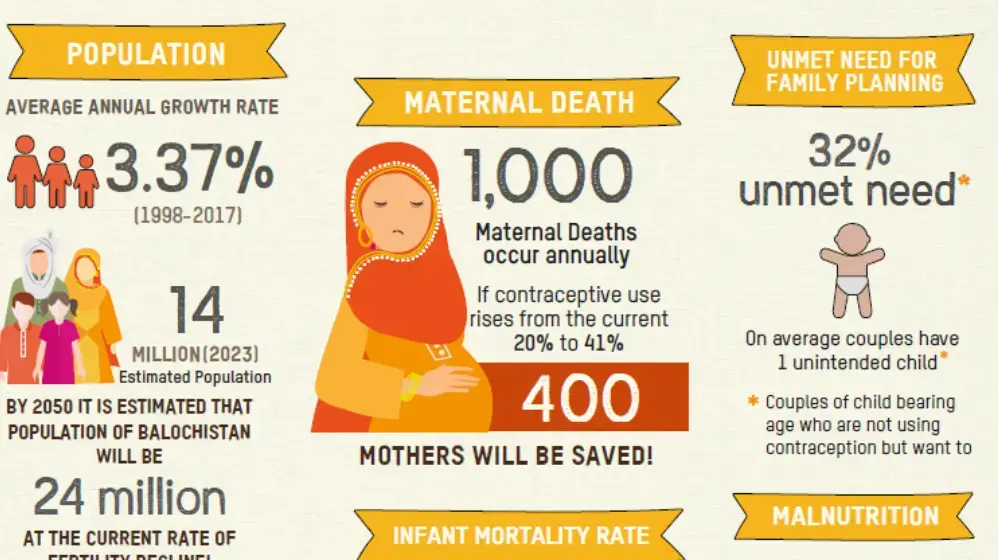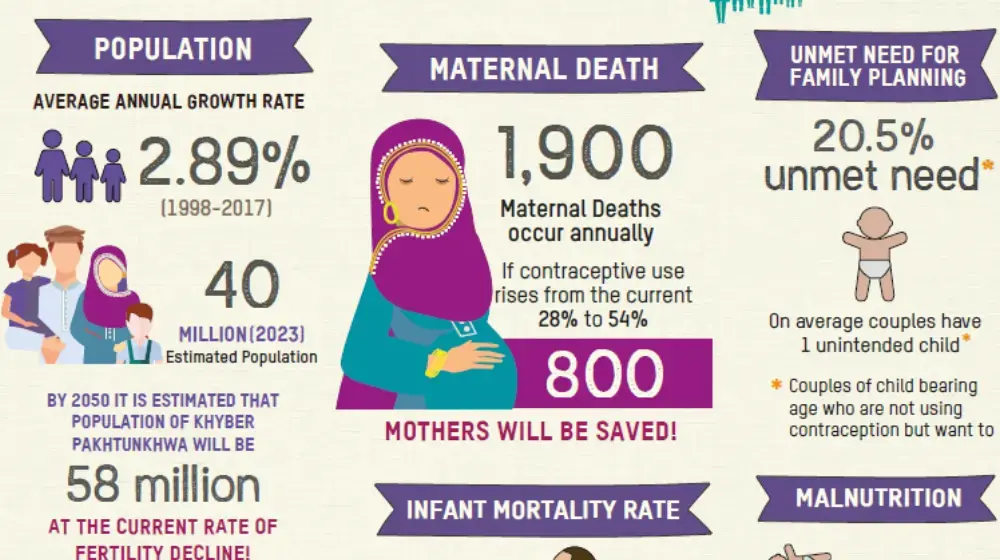On 14 July, the Law and Justice Commission and the Federal Ministry of National Health Services, Regulation, and Coordination organized an international conference on calibrating population and resources to enhance Pakistan’s resilience. The conference brought national, provincial, and high-level experts from different parts of the world to explore ways and opportunities on population dynamics and the success stories in other regional and international experiences.
It was a bitter moment for many participants to see that statistics categorized Pakistan’s performance in the group of underperforming countries suffering from conflict such as Afghanistan and Somalia; Pakistan deserves to have performed better.
While the conference acknowledged the important initiatives by the federal and provincial governments on the population narrative and improving services and advocacy, the recommendations of the conference sent three important broad messages that Pakistan needs to accommodate urgently to make genuine changes in the spectrum of calibrating population and resources.
Only human rights-based approaches can bring sustainable solutions and make genuine change. Governments cannot impose on families or women if or how many children they should have; it is their sole right to families themselves. Couples do not consult demographic trends, population size, or governments’ plans anyway when they decide to have another baby, but they consult their own circumstances.
Government, as a duty-bearer, must ensure that couples, as a right-holder, are empowered to implement their own decisions by providing them with high-quality, accessible, and affordable women-preference contraception services, and relevant information about family planning and its methods, benefits, etc. This includes empowering women to enjoy their reproductive rights, meaning being protected from forced marriage, and forced pregnancy, and to be able to plan with their husbands their own spacing schemes.
Reproductive rights include also but are not limited to, women having the choice to invest in their own human capital including delaying marriage until they complete the aspiration of education and economic empowerment, as well as being protected from gender-based violence. Women in Pakistan comprise a missed economic and social opportunity, and investing in their skills, education, and opportunities is a strategic direction to make a genuine change in the population agenda.
Enhancing the concept of accountability is instrumental to track progress. Accountability means that all government engagements and initiatives are not measured by activities initiated and money spent, but by the actual change that was made in the life of people. The current governance structure for entities engaged in population agenda is not the most effective and efficient option and does not involve the concept of AAP (accountability to affected population).
Furthermore, the population agenda is a national concern; it cannot be left to the population welfare and health departments with the current segregated structures and programs. It should be upgraded at the chief minister and prime minister level while PWDs and HDs lead the implementation. Ministries of finance, planning, education, and other ministries are key partners and leaders and equally own the population agenda. The segregation of population programming between different structures limits the ability of inclusive programming; integration, modernization (or reform) might be an option to create an enabling environment for the AAP approach.
A surgical solution that creates enabling incubator for genuine change is the most viable option; business as usual is not an option. This includes revisiting the NFC formula to make it target-focused instead of demand-driven when it comes to population agenda. It is important that the NFC incentives and Taxing system encourage achieving population targets as stipulated in Pakistan’s Vision such as gender equality, literacy rate, minimizing out-of-school adolescents, women’s economic participation, women empowerment, reducing GBV, the increase in the rate of the prevalence of modern contraceptive, and other relevant output indicators instead of incentivizing population growth. This also includes empowering the culture of data-driven decisions and evidence-based policy and program implementation.
Knowing that more than half of SDG targets do not have available data to measure is a real challenge to measure progress. Data accessibility and making official statistics a “Public Good” and enhancing the right to access public information are important to make a real change. Census is one of the most important instrumental tools for planning at the lower disaggregated level, most of the federal systems keep the census as a federal function to ensure impartiality and independence because it is a symbol of sovereignty where governments count people in their sovereign territories. Pakistan might consider aligning its national statistical system with the ten fundamental principles of official statistics of the United Nations and their consequent revisions and ethical codes of conduct.
The conference has shown that political momentum and anxiety about population growth can be translated into commitment and action that leads to genuine change; this has happened in Bangladesh, India, Iran, Tunisia, Indonesia, and other countries. But to achieve that, Pakistan needs champions and leaders who are decisive and equipped with knowledgeable teams. UNFPA is committed to supporting the government of Pakistan both at the federal and provincial level and I am sure all other development actors and donors are willing to help once Pakistan decides to move from anxiety to genuine action and where to go and how to grow.





